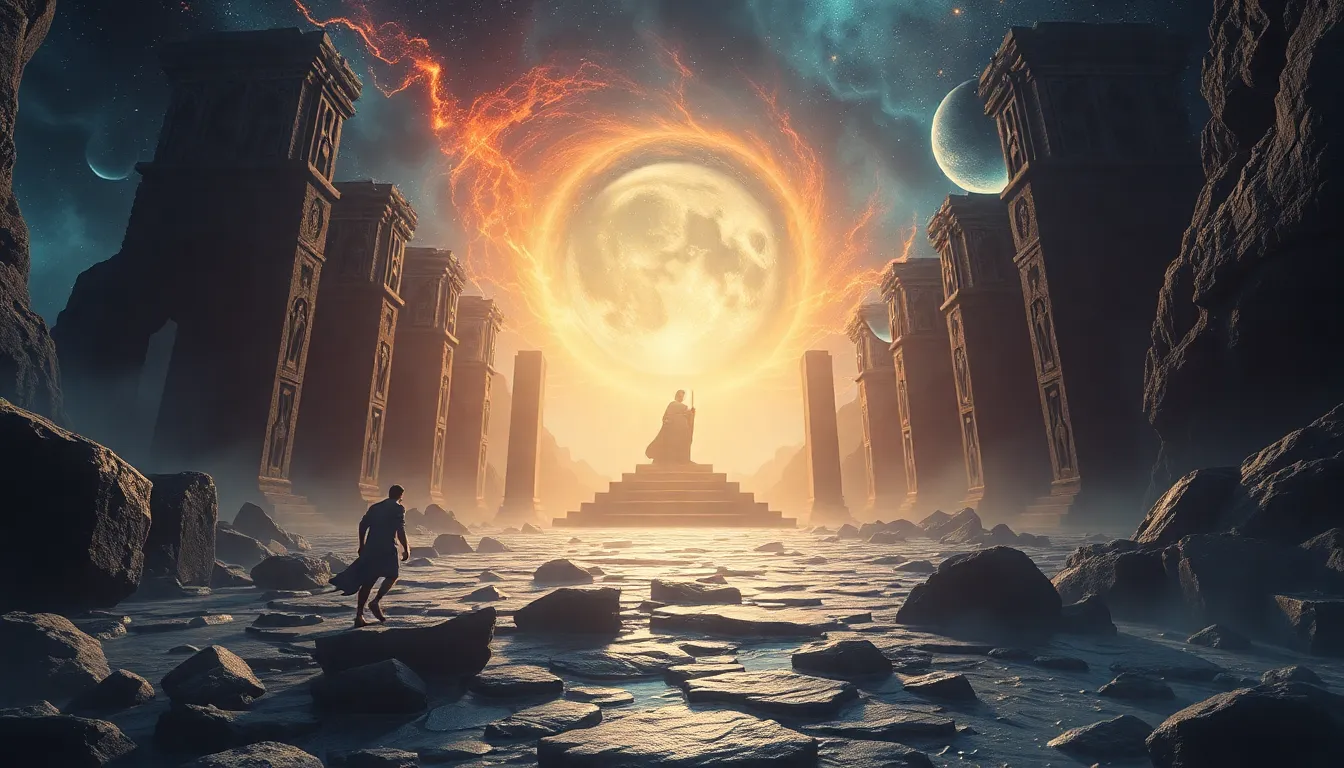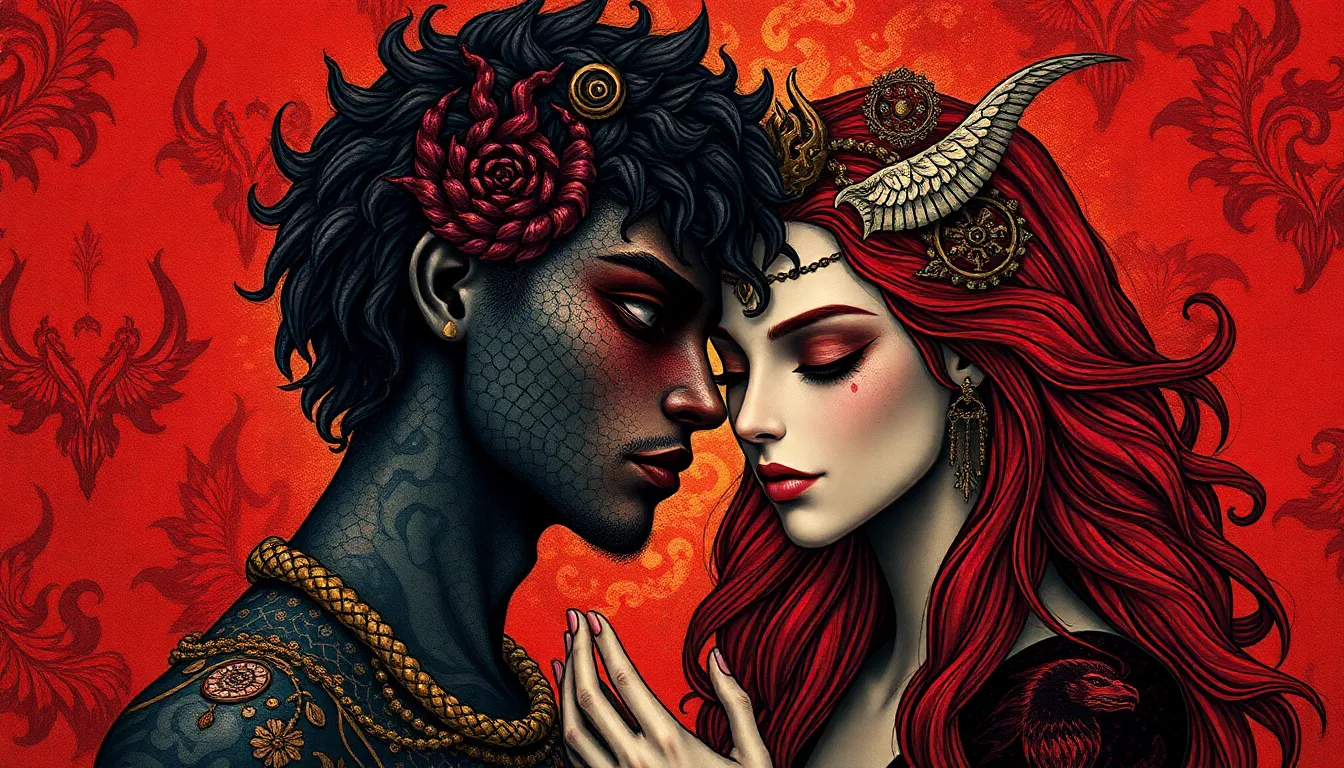The First Echoes: Creation Myths That Resonate Through Time
1. Introduction: The Nature of Creation Myths
Creation myths are the foundational narratives that explain the origins of the world, humanity, and the universe. They are significant across various cultures, serving as a means to understand the cosmos and humanity’s place within it. These myths often encapsulate the values, beliefs, and historical experiences of a culture, providing insight into their worldview.
This article explores the rich tapestry of creation myths from around the globe, delving into their universal themes, cultural contexts, and enduring legacies. By examining these narratives, we can gain a deeper understanding of how different societies interpret the mystery of existence and the human experience.
2. The Universal Themes of Creation
Creation myths, despite their diverse cultural backgrounds, often share common motifs that resonate across time and space. Some universal themes include:
- Chaos and Order: Many myths begin in chaos, with creation representing the imposition of order.
- Divinity: The presence of gods or supreme beings who initiate creation is a recurring element.
- Emergence: The concept of emergence, where life and order arise from primordial substances or conditions, is prevalent.
These themes reflect fundamental human experiences, such as the struggle against chaos, the search for meaning, and the desire to understand our origins. They serve as metaphors for personal and collective journeys, highlighting humanity’s quest for knowledge and identity.
3. Creation Myths of the Ancient Near East
The ancient Near East is home to some of the most influential creation myths, notably the Babylonian “Enuma Elish.” This epic describes the creation of the world through the conflict between the god Marduk and the primordial goddess Tiamat. In contrast, the Hebrew Genesis narrative presents a monotheistic account where God creates the world in six days, emphasizing order and goodness.
These myths not only shaped religious beliefs but also influenced subsequent narratives in Western culture. The themes of creation through conflict and the establishment of order are echoed in various religious texts and philosophical discourse.
4. Indigenous Creation Stories: Land and Identity
Indigenous creation stories often emphasize the connection between people and the land. For many Native American cultures, creation myths are integral to their identity and relationship with nature. Two significant examples are the Navajo and Iroquois creation stories.
- Navajo Creation Story: The Navajo believe in a series of worlds, each representing a stage in the emergence of humanity. This narrative highlights the importance of harmony with nature.
- Iroquois Creation Story: The Iroquois tale of Sky Woman describes the formation of the earth on the back of a turtle, illustrating the sacredness of nature and the interconnectedness of all life.
Oral tradition plays a crucial role in preserving these myths, ensuring that they are passed down through generations and remain relevant in contemporary society.
5. Eastern Perspectives: Hindu and Buddhist Creation Myths
In Eastern cultures, creation myths often reflect complex cosmologies. Hinduism presents a rich narrative of creation involving Brahma, the creator god, and the concept of the cosmic egg (Hiranyagarbha). This myth emphasizes the cyclical nature of the universe, where creation and destruction are intertwined.
Buddhism, on the other hand, embraces a cyclical view of existence, where creation is part of a continuous cycle of birth, death, and rebirth (samsara). These beliefs significantly influence philosophy and culture in Asia, shaping ethical frameworks and spiritual practices.
6. African Creation Myths: Diversity and Spirituality
Africa is home to a rich diversity of creation myths, each reflecting the unique cultural landscapes of the continent. For instance, the Yoruba and Dogon creation myths offer profound insights into spirituality and morality.
- Yoruba Creation Myth: The Yoruba tradition speaks of Olodumare, the supreme being, who creates the world through the actions of various deities, emphasizing communal responsibility and connection to ancestors.
- Dogon Creation Myth: The Dogon people have intricate cosmological beliefs, including the creation of the universe by the Nommo, ancestral spirits who embody water and fertility.
These narratives not only address the origins of the world but also instill a sense of community, morality, and respect for the spiritual realm.
7. Creation Stories of the Americas: From Aztec to Inca
The creation myths of Mesoamerican and South American cultures, such as the Aztec and Inca, reflect their deep connection to nature and the cosmos. The Aztec myth centers around Quetzalcoatl, the feathered serpent, who plays a crucial role in creating humanity from the bones of previous races.
The Inca creation myth involves the sun god Inti and the earth goddess Pachamama, showcasing the importance of agriculture and the natural world in their society. Both cultures demonstrate a sophisticated understanding of astronomy, with their myths often intertwined with celestial phenomena.
8. Modern Interpretations and Adaptations of Creation Myths
In contemporary society, creation myths continue to inspire literature, film, and art. Modern reinterpretations often reflect current issues such as environmentalism, identity, and spirituality. Notable examples include:
- Literature: Books like “American Gods” by Neil Gaiman reimagine ancient deities in a modern context.
- Film: Movies such as “Prometheus” explore themes of creation and the origins of life, intertwining mythology with science fiction.
The impact of science and philosophy has also led to new discussions around creation, challenging traditional narratives and inspiring fresh interpretations.
9. The Function of Creation Myths in Contemporary Society
Creation myths continue to play a vital role in shaping cultural identity and values today. They provide a framework for understanding our place in the universe and inform discussions about science, spirituality, and ethics. Modern communities often uphold traditional creation myths, using them as a source of strength and guidance.
For instance:
- Some Indigenous communities actively engage in rituals that honor their creation stories, reinforcing their connection to the land.
- In multicultural societies, creation myths are often integrated into educational curricula, promoting awareness and appreciation of diverse cultural narratives.
10. Conclusion: The Enduring Legacy of Creation Myths
Creation myths are more than just stories; they are reflections of humanity’s enduring quest for understanding and meaning. They resonate through time, shaping cultures, identities, and philosophies. As we navigate the complexities of existence, these ancient narratives continue to inspire and inform our perspectives on life and the universe. In exploring creation myths, we not only honor the past but also enrich our present and future.




